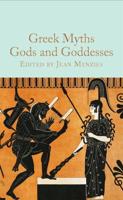Publisher's Synopsis
Anyone who reads the Gospels carefully will notice that there are differences in the manner in which they report the same events. These differences have led many conservative Christians to resort to harmonization efforts that are often quite strained, sometimes to the point of absurdity. Many people have concluded the Gospels are hopelessly contradictory and, therefore, historically unreliable accounts of Jesus. The majority of New Testament scholars now hold that most if not all of the Gospels belong to the genre of Greco-Roman biography and that this genre permitted some flexibility in the manner that historical events were narrated. However, few scholars provide a robust discussion on how this plays out in Gospel pericopes (self-contained passages). Why Are There Differences in the Gospels? provides a fresh approach to the matter by examining the works of Plutarch, a Greek essayist who lived in the first and second centuries CE. Michael R. Licona discovers three-dozen pericopes narrated two or more times in Plutarch's Lives, identifies differences between the accounts, and views these differences in light of compositional devices acknowledged by classical scholars to have been commonly employed by ancient authors. The book then uses the same approach with nineteen pericopes narrated in two or more Gospels to demonstrate that the major differences found in them likely result from the same compositional devices employed by Plutarch. By suggesting that both the strained harmonizations and the hasty dismissals of the Gospels as reliable accounts are misguided, Licona invites readers to view the Gospels in light of their biographical genre in order to gain a clearer understanding of why the differences are present.












